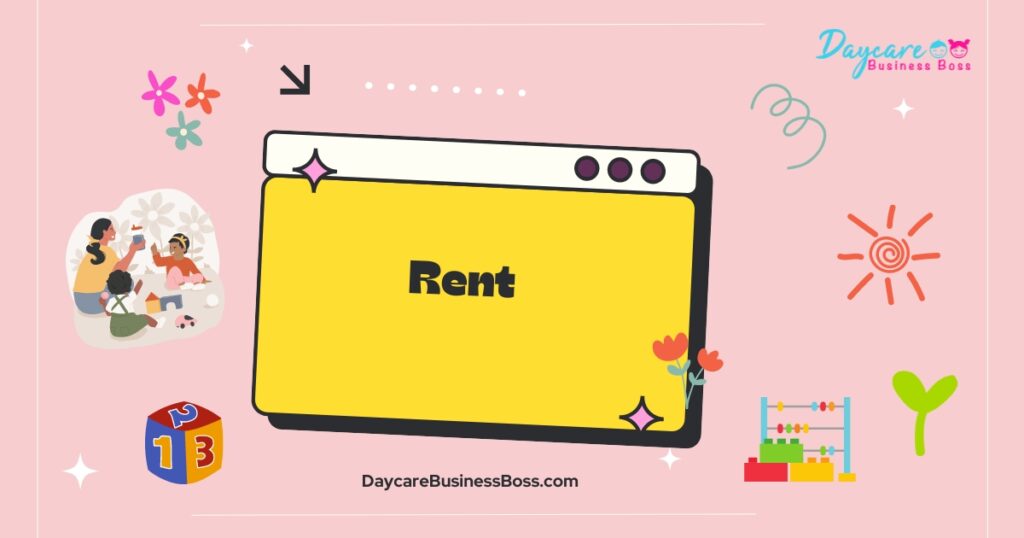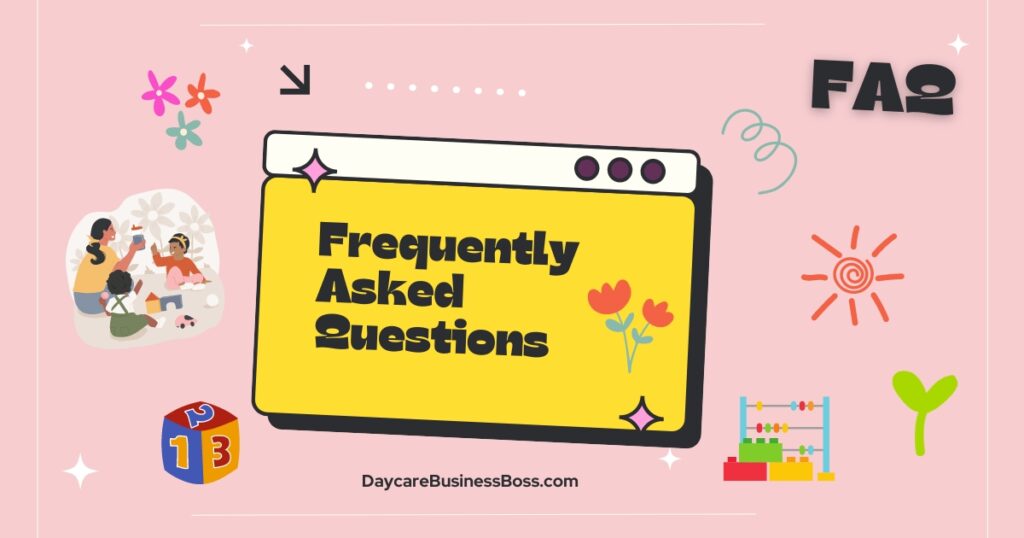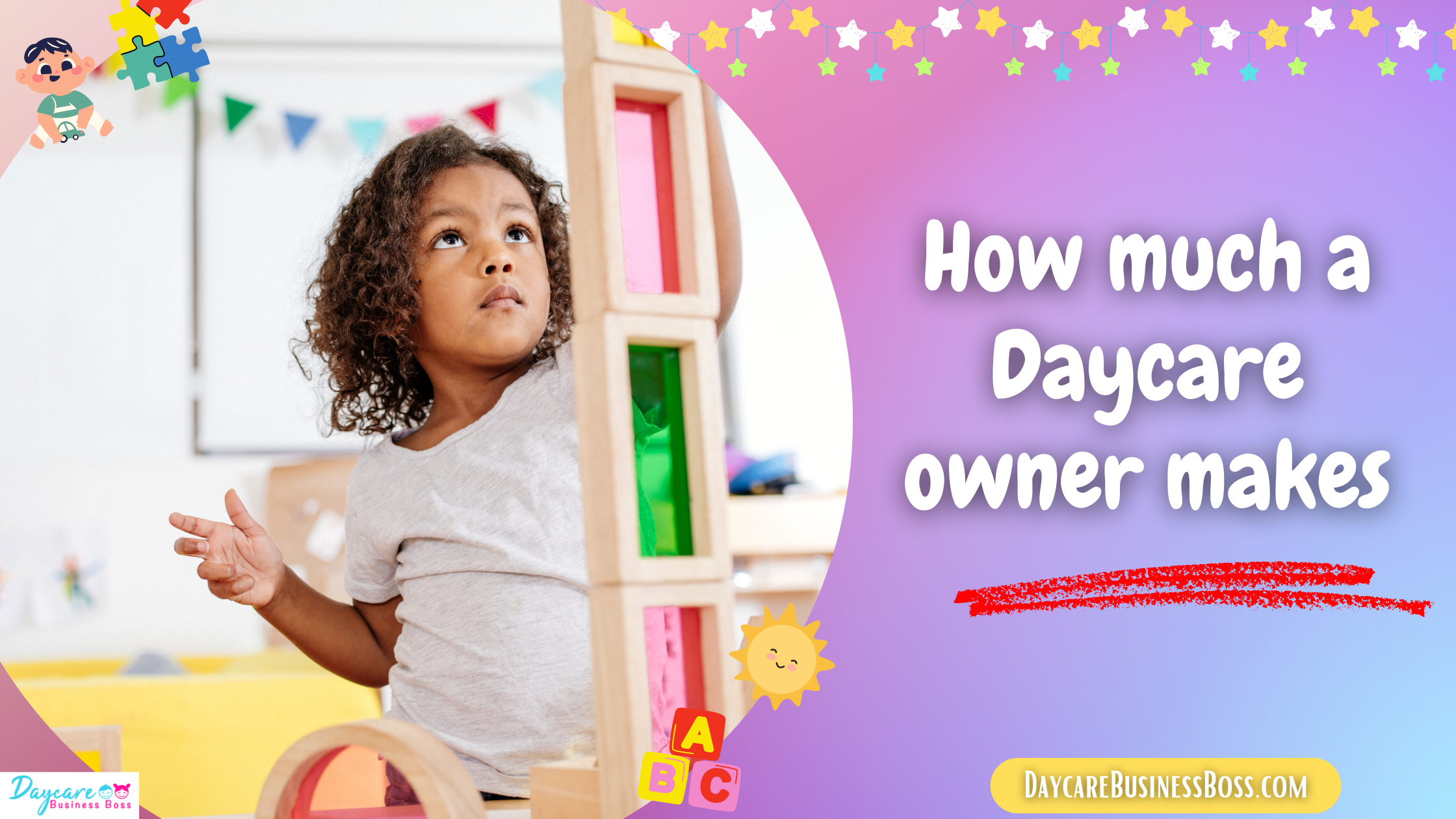If you are thinking about owning your own daycare you are inevitably going to ask the question, “How much am I going to make?” The answer to this question varies widely depending on a number of factors such as daycare size, type of daycare, services offered, and geographical region.
From our research, being the owner of a daycare will make you around $30,000-$45,000 per year. The following article will show how each variable will affect your salary, and what you can expect for your unique situation.
Daycare size
Maybe the most significant factor when it comes to how much you will make as an owner of a daycare is how large your facility is and how many children you can have at one time.
It’s not just about getting as many kids as possible, you also have to manage things such as employees, rent, and operational expenses.
How many children is optimal?
According to Childcare.gov 1 adult should not take care of more than 3-4 infants, 3-4 young toddlers, 4-6 older toddlers, or 6-10 preschoolers at one time. Each state has different rules and guidelines for these so make sure to check your local laws.
We will use these numbers as a guideline throughout this article just to keep it simple.
Employees
If you are planning on having a moderate to large-sized daycare, you will have to hire on employees to help you out and keep you within your state’s regulations. Employees obviously increase your capacity for children, but they also take away from your bottom line.
For example, let’s say you can watch 6 children at $40/day by yourself. Your gross profit would be $240/day, $1,200 per week, and $62,400 per year. We will get into expenses later, but let’s say that came out to a net profit of $40,000 per year, not bad at all for a small operation.
But now let’s say you hire on 2 employees who can each watch an extra 4 kids. Now your gross profit for the year is $145,000, but you pay each employee $15/hr, or $31,200 per year. We’ll factor in roughly $25,000 for operational costs, so your net profit is $57,600.
The point is, you typically experience diminishing returns for each employee you hire on. This means your increase in income will be less for each additional employee, but you will have more supplies to buy, employee issues to deal with, and children to care for.
Rent

Another area that has diminishing returns is rent. If you operate your daycare out of your own home, your rent is 0 (or whatever your current rent/mortgage is on your home). This can be a massive advantage when trying to be a profitable daycare business owner.
Once you grow to the point where operating out of your own home is no longer viable, you will have to go searching for a facility to rent. Most states have their own regulations for how much square footage you need per child, but as an example, in Maryland, if you have 10 2-year olds enrolled, you need 350 square feet inside and 750 square feet outside.
We’ll use $15 per square foot, which equates to $5,250 per month. If we used our previous example where you were making $67,600 per year, your net profit is all but gone.
That being said, having a professional facility gives you advantages such as capacity, access for parents, and a professional appearance compared to a home daycare. Sometimes this upfront cost can be enough to set you apart from the competition, get more clients, and be able to charge a premium price.
Operational expenses
Your operational expenses will vary widely but some things you need to account for are:
- Rent (if applicable)
- Insurance, business license & fees, and taxes
- Supplies & equipment
- Labor
These will vary for each daycare, but these can fall between $1500/mo on the low end for a 4-6 child operation, or upwards of $5,000 for a 25+ kid operation. Do your best to get an accurate estimate of what your expenses will be before you start your business, so you have a realistic picture of what you expect.
Type of daycare
There a different types of daycare that will affect how much you can make as the owner of the center. There’s child care centers, pre-school programs, and home daycare centers which all offer their own advantages and disadvantages.
Child care centers
Child care centers are usually larger facilities that have large groups of similar aged children. These facilities offer some instruction and education programs, but for the most part it is more focussed on providing a safe environment for children to be in when they are not around their parents.
These centers typically charged less than other types of daycare, but can take in more children because they offer more supervision and general care instead of customized care for each child.
Pre-school programs
Pre-school programs are usually offered for children ages 3-5. They are used as an introduction to a school environment and a way to socialize children with their peers.
These programs will focus on school readiness, basic learning skills, and social skills. These tend to charge slightly more than a child care center and have smaller groups.
Home daycare center
A home daycare center is usually the smallest of the three types of daycares. Typically it is just one employee/owner, but they also might opt to hire an employee or 2 to help them with tasks throughout the day.
These centers can typically charge a significantly higher price because they offer very small group sizes, individual attention, and customized activities for each child.
Services offered
Offering unique services that not a lot of facilities in your area offer is a great way to boost your income as a daycare owner. Some unique services to consider are:
- Infant care
- Special needs
- Gifted and talented
- Foreign language
Infant care
If you choose to open an infant care facility you will be able to charge a premium, but it comes at a price. The reason you can charge a premium, frankly, is because very few people want to do this type of care.
Infants are a lot of work, a lot more than most people expect. As mentioned earlier, most states recommend 1 adult per 3-4 infants, so even if you can charge a significant premium, will it be worth it compared to 8 pre-schoolers?
The choice is yours, if you are great with infants and think you can take it on, by all means, go for it. But if you are unsure and are just trying to make a better margin, it might be best to look elsewhere for opportunity.
Special needs
Working with special needs children is an area where you need to be very good at what you do, or you will struggle from the start. More than that, if you aren’t a professional when it comes to working with special needs children, you are doing them a disservice by not giving the level of care that they need and deserve.
Quality caretakers can have an enormous impact on a child’s life and how they develop both mentally and socially. If you have the tools and ability to care for special needs children, this could be a win-win for you and the families in your community.
Gifted and talented
Running a gifted and talented program can be another great niche to boost your income, but it comes with lofty expectations. Most parents who are sending their children to these programs are looking for results from you and their children.
This can put both of you under serious pressure that might not be easy to manage. If you choose to go this route just make sure you are ready to perform and able to help the child learn at a high level.
Foreign language
If you are bi-lingual you are able to offer a very critical thing that most daycares can’t offer, communication. Being bi-lingual gives you two options, you can:
- Open a daycare that services both native and foreign-language speakers. This is a great option if you have a lot of foreign-language speakers in your community. OR
- Open a bi-lingual daycare that teaches and communicates in 2 languages throughout the day. This is a wonderful option to broaden young children’s horizons and has been shown to offer many benefits to young minds.
Geographic region
This one is pretty obvious for most people, a daycare in Manhattan will certainly charge more than a daycare in rural South Dakota. Just because you can charge more doesn’t mean you are going to make more.
With bigger cities comes higher taxes, higher cost of living, and a number of logistical issues. The best way to figure out what kind of money you can make in your region is to see what other daycare businesses are charging and what services they are providing.
Once you have this knowledge you will be able to assess what competitive advantages your daycare facility may have over the competition, and how much you will be able to charge.
Related questions

If I am operating out of my own home, do I still need to get a business license, insurance, permits etc.?
Yes, typically working with children means there are a significant amount of rules and regulations you need to abide by. At the bare minimum, you should get licensed as a childcare provider, register your business, and get insurance for your facility.
Each state has its own rules and regulations, to find information on your state you can go here.
Do I need a loan to start my daycare?
Most daycare owners started their business with a loan. Typical startup costs for a daycare ranges between $50,000-$200,000. If you are able to pay this out of pocket and are comfortable doing so, then that is perfectly acceptable.
If you choose to get a loan you are not putting yourself at much of a disadvantage, you will have the added expense of your loan payment, but you will have enough startup capital to create a quality daycare facility.
Please note: This blog post is for educational purposes only and does not constitute legal advice. Please consult a legal expert to address your specific needs.
Ready to start your Daycare, checkout our startup course and documents here.

Meet Shawn Chun: Entrepreneur and Childcare Business Fan.
I’m a happy individual who happens to be an entrepreneur. I have owned several types of businesses in my life from a coffee shop to an import and export business to an online review business plus a few more and now I create online daycare business resources for those interested in starting new ventures. It’s demanding work but I love it. I do it for those passionate about their business and their goals. That’s why when I meet a childcare business owner, I see myself. I know how hard the struggle is to retain clients, find good employees and keep the business growing all while trying to stay competitive.
That’s why I created Daycare Business Boss: I want to help childcare business owners like you build a thriving business that brings you endless joy and supports your ideal lifestyle.


2 thoughts on “How much a Daycare owner makes”
Comments are closed.